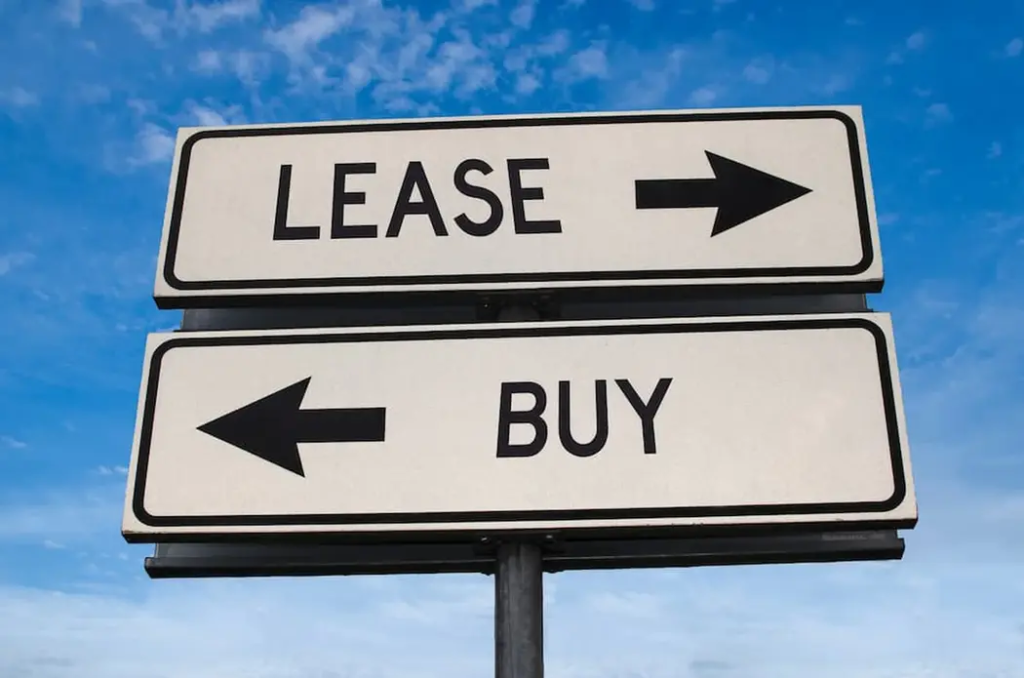
Choosing whether to lease or buy a car is a significant decision that depends on your financial situation, lifestyle, and long-term goals. Here’s a detailed guide to help you weigh your options.
Advantages and Disadvantages of Leasing
Pros of Leasing:
- Lower Initial and Monthly Costs: Leasing requires little to no down payment, and monthly payments are typically lower than financing a car purchase.
- Access to New Models: Leasing allows you to drive a new car with the latest features every few years.
- Maintenance Coverage: Most leases cover maintenance and repair costs during the lease term, saving you money.
- No Depreciation Worries: Since you’re not buying the car, you avoid concerns about depreciation.
Cons of Leasing:
- Mileage Restrictions: Leases have mileage limits, and exceeding them can result in additional fees.
- No Ownership Equity: At the end of the lease, you don’t own the car, so your payments don’t build equity.
- Restrictions on Modifications: Leased vehicles usually can’t be customized.
- End-of-Lease Costs: Additional fees may apply for excessive wear and tear or ending the lease early.
Advantages and Disadvantages of Buying
Pros of Buying:
- Ownership: Once you’ve paid off your car, it’s entirely yours to keep, sell, or trade.
- No Mileage Limits: You can drive as much as you want without penalties.
- Long-Term Savings: Although upfront costs are higher, owning a car is often more cost-effective over time.
- Freedom to Modify: You can personalize and modify your car as you please.
Cons of Buying:
- Higher Upfront Costs: A significant down payment and higher monthly payments may strain your budget.
- Depreciation: Cars lose value over time, especially in the first few years.
- Maintenance Costs: Once the warranty expires, you’re responsible for repair and maintenance costs.
Key Factors to Consider
Financial Considerations
- Short-Term Affordability: Leasing offers lower initial and monthly costs, making it ideal for those on a tight budget.
- Long-Term Value: Buying a car is a better long-term investment as it eliminates monthly payments after the loan term.
Lifestyle Considerations
- Frequent Upgrades: If you enjoy driving the latest models with cutting-edge features, leasing may be the right choice.
- Long-Term Stability: If you plan to keep the car for many years and rack up mileage, buying is more practical.
Environmental and Technological Factors
- Leasing is a good option if you want to drive environmentally friendly vehicles like hybrids or EVs and upgrade as technology improves.
- Ownership is better if you prioritize long-term sustainability and want to invest in eco-friendly options.
Making the Right Decision
To decide between leasing and buying:
- Evaluate Your Finances: Assess your budget for upfront costs and monthly payments.
- Determine Your Driving Habits: Consider your mileage and how long you plan to keep the car.
- Consider Future Goals: Think about your long-term plans, including your preference for ownership versus flexibility.
FAQs
- Are there leasing limitations on mileage usage? Yes, most leases have mileage limits, usually between 10,000 and 12,000 miles per year. Exceeding this can incur additional charges.
- Can I buy a car after leasing it? Many lease agreements offer the option to buy the car at the end of the lease term for a predetermined price.
- Is leasing a good option for beginner drivers? Leasing can be ideal for beginners, as it provides a car without a long-term commitment and often includes maintenance.
- What is the most significant financial benefit of buying a car? Buying allows you to build equity and eventually eliminate monthly payments, leaving only maintenance and insurance costs.
- Do leases affect credit scores? Yes, leasing involves a credit check, and consistent payments can positively impact your credit score.
Conclusion: Leasing is perfect for those who value flexibility, low upfront costs, and access to the latest features. Buying, on the other hand, suits individuals who prefer long-term value, ownership, and freedom from mileage restrictions. Choose the option that aligns with your financial goals and lifestyle.
